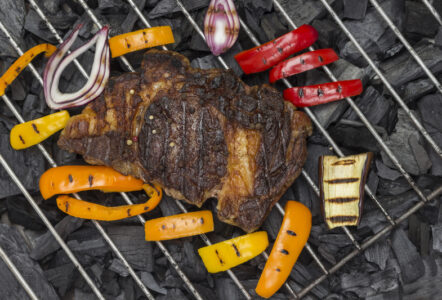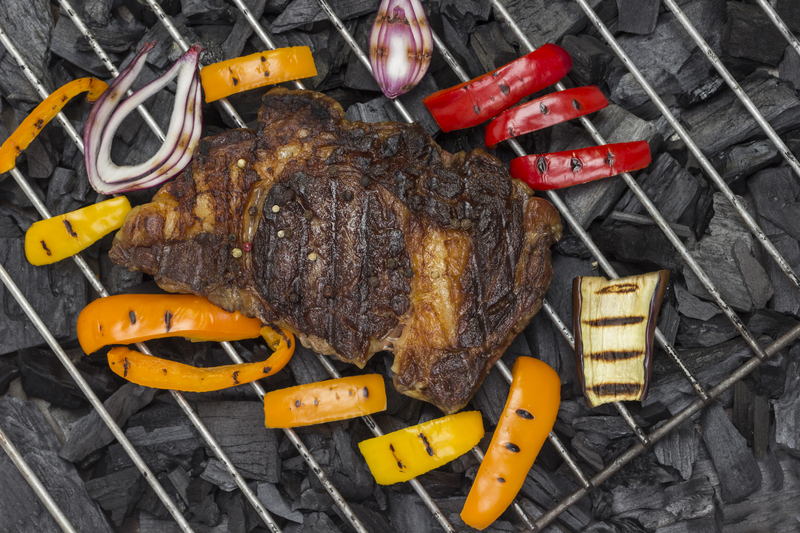 When it comes to choosing between a charcoal BBQ and a propane BBQ, health considerations often come up.
When it comes to choosing between a charcoal BBQ and a propane BBQ, health considerations often come up.
Some argue that charcoal BBQs can pose greater health risks due to the production of Heterocyclic Amines (HCAs) and Polycyclic Aromatic Hydrocarbons (PAHs), which are carcinogens formed when meat is cooked at high temperatures or exposed to smoke.
These compounds are typically more prevalent in charcoal grilling due to the higher heat and smoke involved.
On the other hand, propane BBQs produce fewer of these harmful chemicals, making them a potentially safer option for health-conscious grill enthusiasts.
Propane grilling is generally considered to be healthier than charcoal grilling due to the lower levels of carcinogens produced.
This insight can help guide those trying to reduce health risks while still enjoying a barbeque.
For those who love the flavor of smoke-infused meats, it’s important to consider cooking methods and time to minimize risks.
Simple adjustments, such as using leaner cuts of meat or marinating, can help in reducing the formation of HCAs and PAHs while maintaining the grilling experience.
Exploring these options can provide a balanced approach to grilling choices.
Understanding Charcoal and Propane Grilling
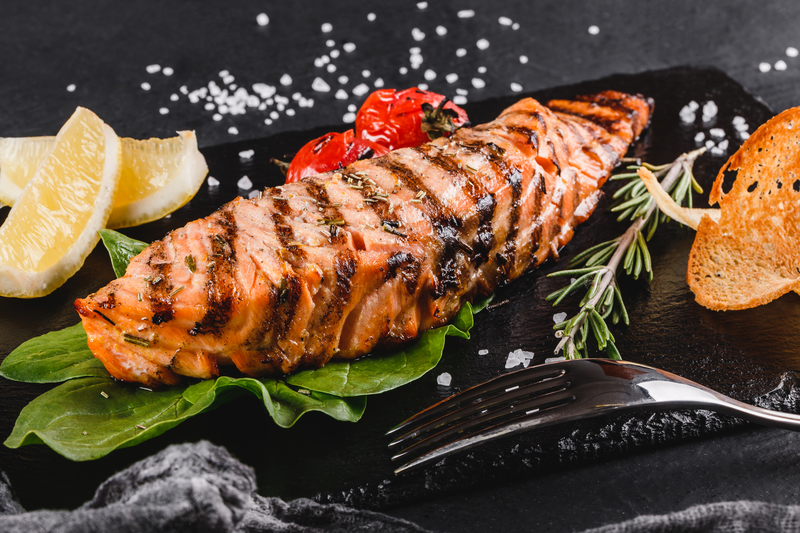
Charcoal and propane grilling offer distinct methods, flavors, and experiences.
Charcoal grills typically provide a smoky essence, while propane grills ensure convenience with quicker ignition and temperature control.
Types of Grills
Charcoal grills come in various styles, such as kettles, barrels, and ceramic cookers.
Kettles are popular for their affordability and simple design.
They feature a rounded lower bowl and a lid, optimizing heat circulation for even cooking.
Barrel grills, often larger, resemble a barrel lying on its side.
They offer a larger cooking space, making them ideal for big gatherings.
Ceramic cookers, retaining heat efficiently, sustain high temperatures for exceptional slow cooking.
Propane grills, commonly identified as gas grills, also present multiple varieties.
Portable grills are suited for small spaces or outdoor adventures.
Mid-sized grills accommodate family meals, with features such as side burners and storage space, while larger models cater to big events, often including multiple burners and rotisserie attachments.
Among these, each grill type targets different needs and experiences.
Fuel Source
Charcoal, derived from partially burned wood, infuses food with a rich, smoky flavor.
It demands time to light and reach optimal cooking temperatures, requiring more attention and expertise, but rewards with distinctive taste improvements.
Charcoal briquettes and lump charcoal provide distinct effects on flavors and burning characteristics, with lump charcoal burning hotter and cleaner.
Propane, a liquefied petroleum gas, offers convenience and control.
It ignites rapidly and allows easy adjustment of cooking temperatures, providing excellent consistency.
Propane grills come equipped with devices like regulators and knobs to facilitate precise heat management.
Moreover, propane produces less smoke, maintaining the food’s natural essence while avoiding any residual flavors from fuel combustion.
Comparing Cooking Techniques
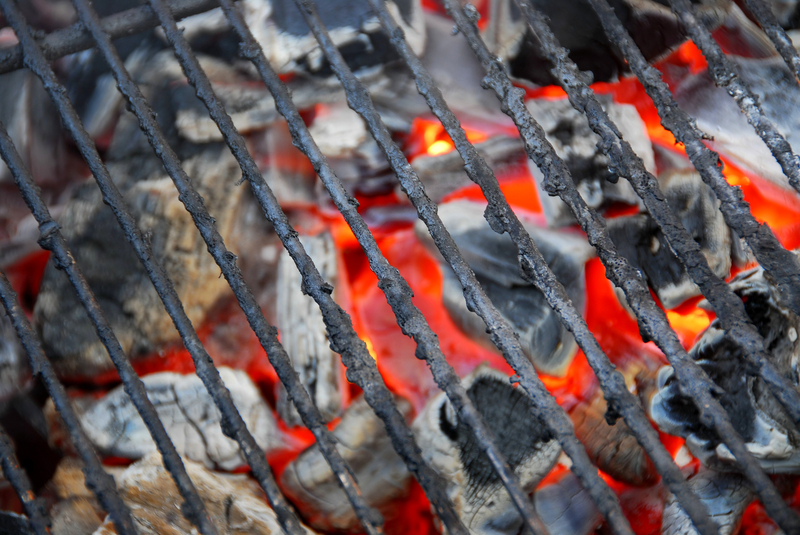
Charcoal and propane grilling differ significantly in terms of temperature control, ease of use, and the overall grilling experience.
Here’s a closer look at these aspects.
Temperature Control
Charcoal grilling: It offers significant heat levels, reaching temperatures that can provide a satisfying sear on meats.
The downside is that controlling and maintaining these temperatures requires skill and experience.
Propane grilling: It excels in precise temperature control with built-in knobs.
Users can adjust the heat easily, allowing for consistent cooking without frequent monitoring.
This makes it ideal for cooking foods that require gentle or sustained heat.
Conclusion: Those prioritizing ease and precision will find propane more user-friendly, while traditionalists who spend time mastering temperature nuances may prefer charcoal.
Ease of Use
Charcoal grilling: It involves a more complex setup.
Consider time to ignite the charcoal, manage airflows, and maintain fuel levels.
This enhances the cooking process for those who enjoy hands-on interaction.
Propane grilling: It’s relatively straightforward.
A simple turn of the knob ignites the grill, and there’s little need to adjust settings during the cooking process.
This makes it accessible even for beginners or those lacking time.
Conclusion: Propane grills provide a more straightforward, less labor-intensive experience, making them ideal for convenience seekers.
Grilling Experience
Charcoal grilling: It tends to offer a more traditional and authentic experience by infusing the food with a smoky flavor.
This method emphasizes a connection to primitive cooking techniques, often seen as more rewarding by purists.
Propane grilling: While lacking the distinctive smoky flavor, propane grills provide a more modern grilling experience.
They offer convenience, with less cleanup and ready-to-cook surfaces available quickly.
Conclusion: For an authentic flavor and hands-on grilling, charcoal is preferred, whereas propane appeals to those valuing efficiency and ease.
Flavor and Aroma Profiles
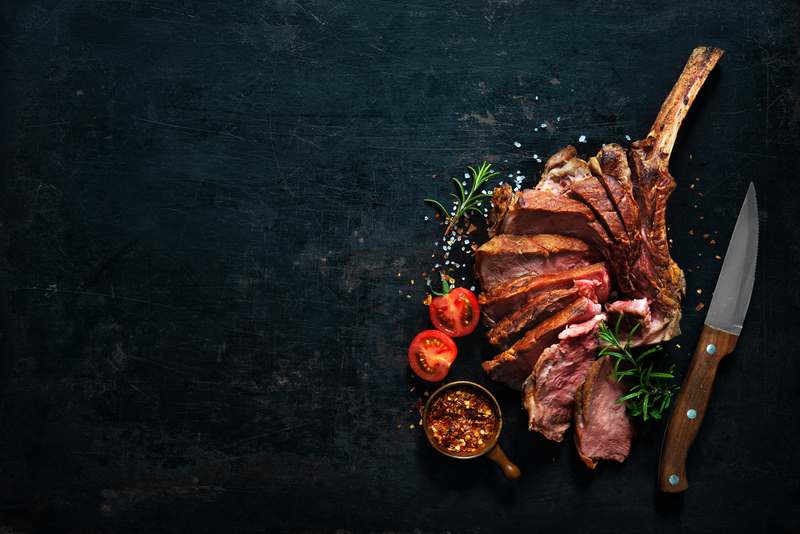
Charcoal and propane BBQs offer distinct flavor qualities that can enhance the grilling experience.
Both methods provide unique characteristics that cater to different taste preferences.
Authentic Flavor
Charcoal grills are often praised for their ability to impart an authentic, rich flavor to grilled foods.
This flavor comes from the charcoal’s high heat and the drippings that vaporize upon contact with the coals.
These vapors envelop the food, creating a distinct taste that many barbecue enthusiasts find appealing.
The charcoal’s composition plays a significant role in flavor development.
Charcoal briquettes, often made from wood and other organic materials, can add a more natural taste compared to propane.
Their ability to reach and maintain higher temperatures can also caramelize marinades and seasonings effectively.
Smoky Flavor
The smoky flavor is a key aspect of charcoal grilling, traditionally recognized as a signature component of barbequed cuisine.
The burning of natural wood and additives in the charcoal emits a smoke that infuses into the food, enhancing its taste profile.
This is especially appealing to those who enjoy robust and earthy flavors.
Using wood chips or chunks in combination with charcoal can intensify the smoke, adding depth to the flavor.
Varieties such as hickory, mesquite, and applewood each impart unique tastes, allowing for a customized grilling experience.
This creates a layered aroma that many find irresistible, setting charcoal apart in the BBQ flavor spectrum.
Health Considerations
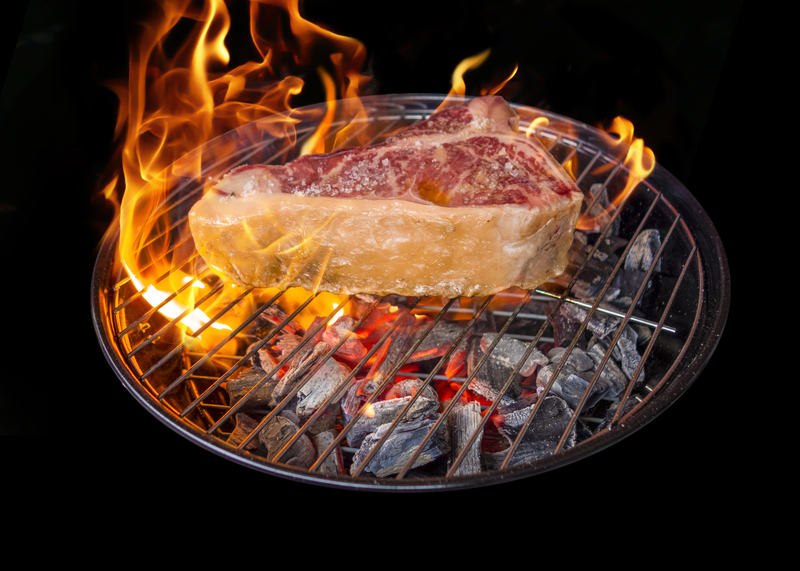
When comparing charcoal and propane BBQ, health concerns often arise.
Key issues include the formation of carcinogenic compounds like HCAs and PAHs in meats cooked over high heat.
Additionally, other potential risks, such as acrylamide formation and inhalation of smoke, warrant attention.
Heterocyclic Amines and Polycyclic Aromatic Hydrocarbons
Heterocyclic amines (HCAs) and polycyclic aromatic hydrocarbons (PAHs) are compounds linked to possibly increasing cancer risk.
These substances form when proteins and fats are exposed to high temperatures.
Charcoal grills may produce higher levels due to increased smoke and direct flame contact.
Studies show that methods like marinating meat can reduce HCA formation.
Also, flipping meat regularly and reducing cooking time can help lower levels.
Using a propane grill may decrease PAH levels since the cooking surface is less in contact with smoke.
Other Potential Risks
Apart from HCAs and PAHs, advanced glycation end-products (AGEs) and acrylamide may pose health risks.
These compounds might contribute to inflammation and chronic disease.
Charcoal grilling can lead to higher AGE levels due to prolonged exposure to heat.
Additionally, inhaling smoke during grilling can be hazardous, introducing respiratory risks.
Proper ventilation and staying away from the direct smoke path can mitigate this.
Also, cleaning the grill regularly reduces residue build-up that might produce acrylamide.
Operational Convenience and Maintenance
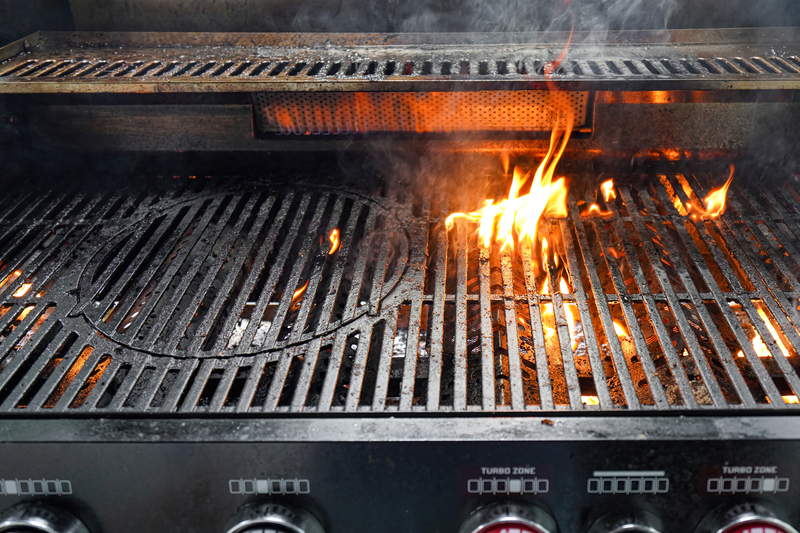
Charcoal and propane grills differ significantly in terms of setup, maintenance, and portability.
Charcoal grills often require more effort and time, while propane grills are noted for their ease of use.
Setup, Cleaning, and Maintenance
Setting up a charcoal grill can be more time-consuming because it involves arranging charcoal, lighting it, and waiting for it to reach the right temperature.
Propane grills, in contrast, ignite quickly with a turn of a knob, making them more convenient.
Cleaning a charcoal grill can be messy due to ash buildup, which needs regular removal.
Regular maintenance includes cleaning grill grates and checking burners for propane grills, simplifying the cleanup process and reducing the time spent.
Portability and Accessories
Portable charcoal grills are often lighter and easier to transport, making them suitable for camping.
Propane grills might require larger tanks, potentially hindering portability.
Both types of grills offer various accessories.
Charcoal grills might include items like chimney starters, while propane models may feature side burners or smoker boxes, enhancing versatility.
Accessories tailored to each type can align with specific cooking preferences, offering added convenience.
Economic Aspects
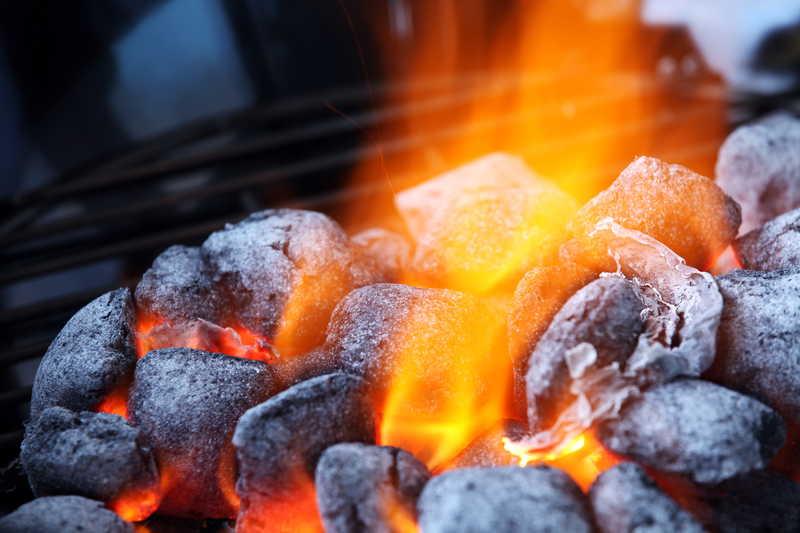
The choice between charcoal and propane grills has economic and environmental dimensions.
Each option presents benefits and challenges in terms of cost-efficiency and environmental footprint, depending on factors like fuel type and usage frequency.
Cost Efficiency
In terms of cost, charcoal grilling might lead to higher expenses over time.
Charcoal briquettes and lump charcoal, used for their distinct flavors, can be less cost-effective than propane.
A typical 20-pound propane tank may provide between 18-20 hours of cooking time, while charcoal users need to regularly purchase bags.
Although the upfront cost of a propane grill is generally higher, savings accumulate during periods of regular use due to lower fuel costs.
Propane’s consistent heat and easier temperature control make it economically attractive in the long run.
On occasion, propane grill owners may encounter costs related to tank refills or replacements but find these infrequent relative to charcoal purchases.
Safety and Food Quality
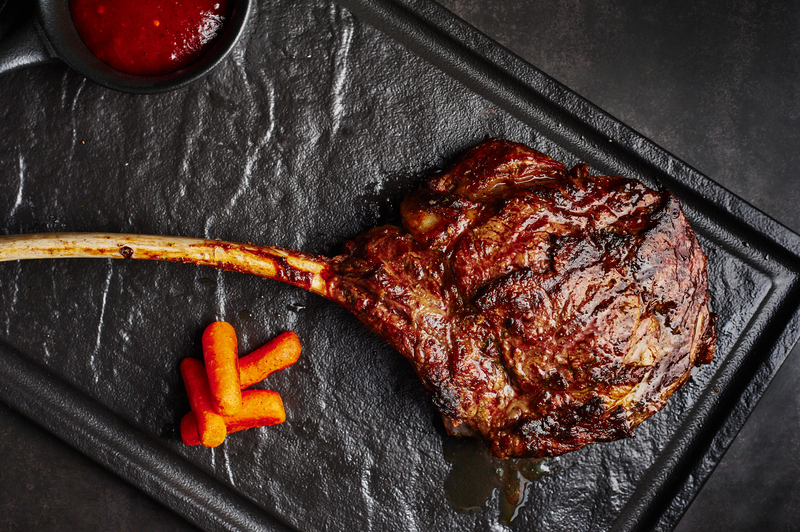
Charcoal and propane BBQ methods have distinct safety considerations and impacts on food quality.
Understanding these differences is crucial for making informed choices while grilling.
Controlling the Risk of Toxins
Using charcoal can release certain compounds such as PAHs and HCAs, especially when fat drips onto the coals and creates smoke.
Minimizing toxin exposure involves choosing lean cuts of meat, trimming excess fat, or using a drip pan.
Charcoal grilling also requires proper ventilation to prevent harmful carbon monoxide accumulation.
Maintaining distance between food and heat source can further reduce potential toxin formation.
Propane grilling is generally considered safer in terms of toxin production, if used correctly.
Food Safety Best Practices
Ensuring food is cooked to safe temperatures is critical, regardless of grilling type.
Investing in a reliable meat thermometer can assist in monitoring internal temperatures.
Both charcoal and propane methods benefit from proper grill maintenance, like regular cleaning to avoid cross-contamination and harmful residue buildup.
It’s important to always handle raw meat carefully by keeping it separate from other foods and using clean utensils.
Either grilling method requires attention to grill stability and safety, reducing the risk of accidental tipping or burns.
Utilizing these practices ensures a safer and enjoyable BBQ experience.
Top Grills to Consider: Charcoal and Propane Options
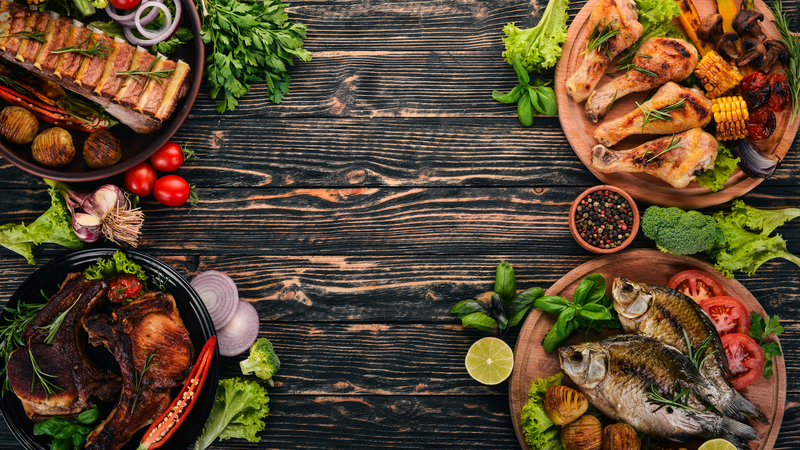
If you’re deciding between charcoal and propane grilling, choosing the right grill can greatly enhance your cooking experience.
Here are two excellent options tailored to each grilling style:
Weber Kettle Premium Charcoal Grill
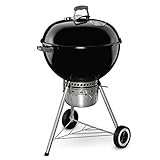 The Weber Kettle Premium is a time-tested favorite among charcoal grillers.
The Weber Kettle Premium is a time-tested favorite among charcoal grillers.
Its iconic design not only provides aesthetic appeal but also delivers exceptional performance.
With a 22-inch cooking surface, it offers ample space for grilling multiple items at once.
The durable porcelain-enameled lid and bowl retain heat effectively and resist rust or peeling.
Its precision venting system ensures optimal airflow for consistent heat control, making it easy to achieve that smoky, char-grilled flavor.
Weber Spirit E-310 Propane Grill
 The Weber Spirit E-310 is an excellent choice for those who prioritize convenience and efficiency.
The Weber Spirit E-310 is an excellent choice for those who prioritize convenience and efficiency.
Featuring three stainless steel burners, it offers powerful, even heat distribution across a 529-square-inch cooking area, ideal for feeding family or friends.
The grill includes a porcelain-enameled cast-iron cooking grate, which provides excellent heat retention and is easy to clean.
The push-button ignition ensures a hassle-free start, while the propane fuel source allows for consistent heat without the need for additional prep time.
With its combination of performance and convenience, this grill is perfect for anyone looking to enjoy delicious barbecue with minimal effort.
Select the grill that best suits your cooking style and fuel preference to enhance your outdoor cooking experience.
Whether you’re after the authentic smoky flavor of charcoal or the convenience and precision of propane, the right grill can make all the difference.
The Final Verdict
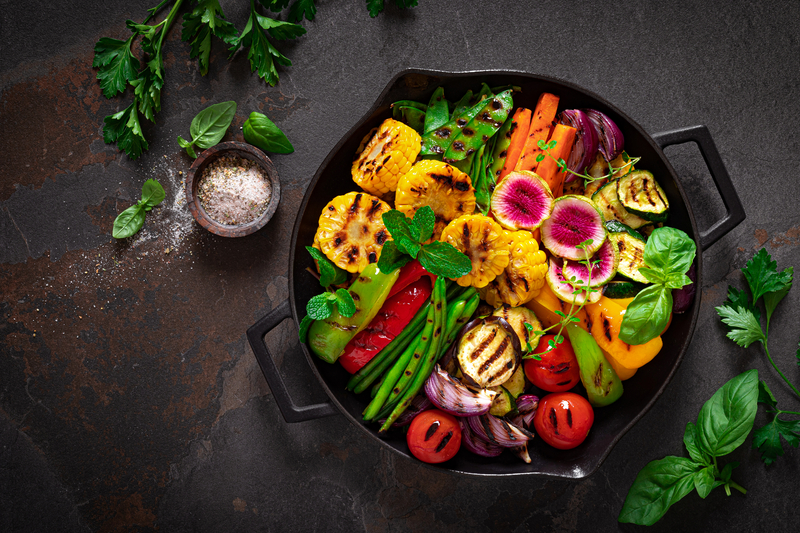
Charcoal and propane each bring unique attributes to grilling, influencing taste, convenience, and health implications.
While charcoal might appeal to traditionalists for its distinct flavor, propane offers a cleaner alternative.
Pros and Cons of Charcoal Grilling
Charcoal grilling is favored for its ability to impart a smoky flavor that many enthusiasts love.
The high heat it produces is excellent for searing meats, creating a crispy exterior while keeping the inside juicy.
Pros:
- Flavor: Smoky and rich.
- High Heat: Perfect for searing.
However, charcoal grilling can be time-consuming. Lighting the coals and waiting for the right temperature requires patience.
Cons:
- Setup Time: Longer.
- Health Concerns: Higher levels of carcinogens released due to smoke.
Advantages of Propane Grilling
Propane grilling offers convenience and a clean cooking experience.
It lights up quickly and allows more precise temperature control, which suits both casual and more controlled cooking styles.
Advantages:
- Ease of Use: Quick start.
- Control: Adjustable heat settings.
Health-wise, propane is often considered the healthier choice.
It produces fewer carcinogens, reducing health hazards associated with grilling.
Health Benefits:
- Clean Burning: Less smoke.
- Reduced Carcinogens: Healthier cooking conditions.
Key Differences and Personal Preference
Charcoal vs. propane presents a classic debate on taste vs. convenience.
Charcoal grilling might attract those who value flavor depth and tradition.
Key Differences:
- Flavor Impact: Charcoal provides a distinct taste.
- Convenience: Propane is quick.
Grilling needs and style ultimately guide choice.
Those seeking a healthier option might lean towards propane.
On the other hand, if flavor is paramount, charcoal remains unmatched.
Preferences:
- Flavor Enthusiasts: Charcoal.
- Health Conscious: Propane.
Choosing the right method depends on one’s priorities and grilling style.

